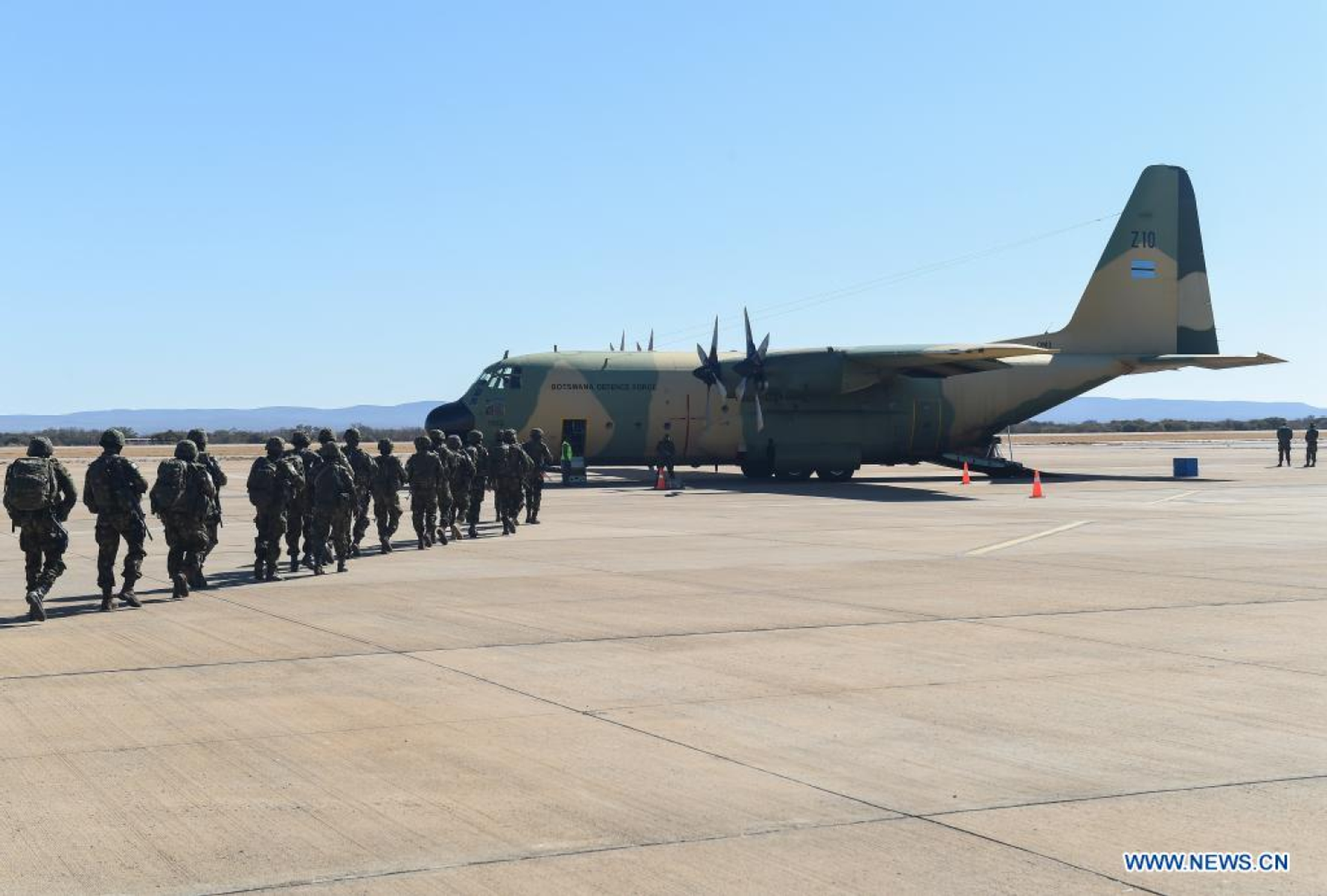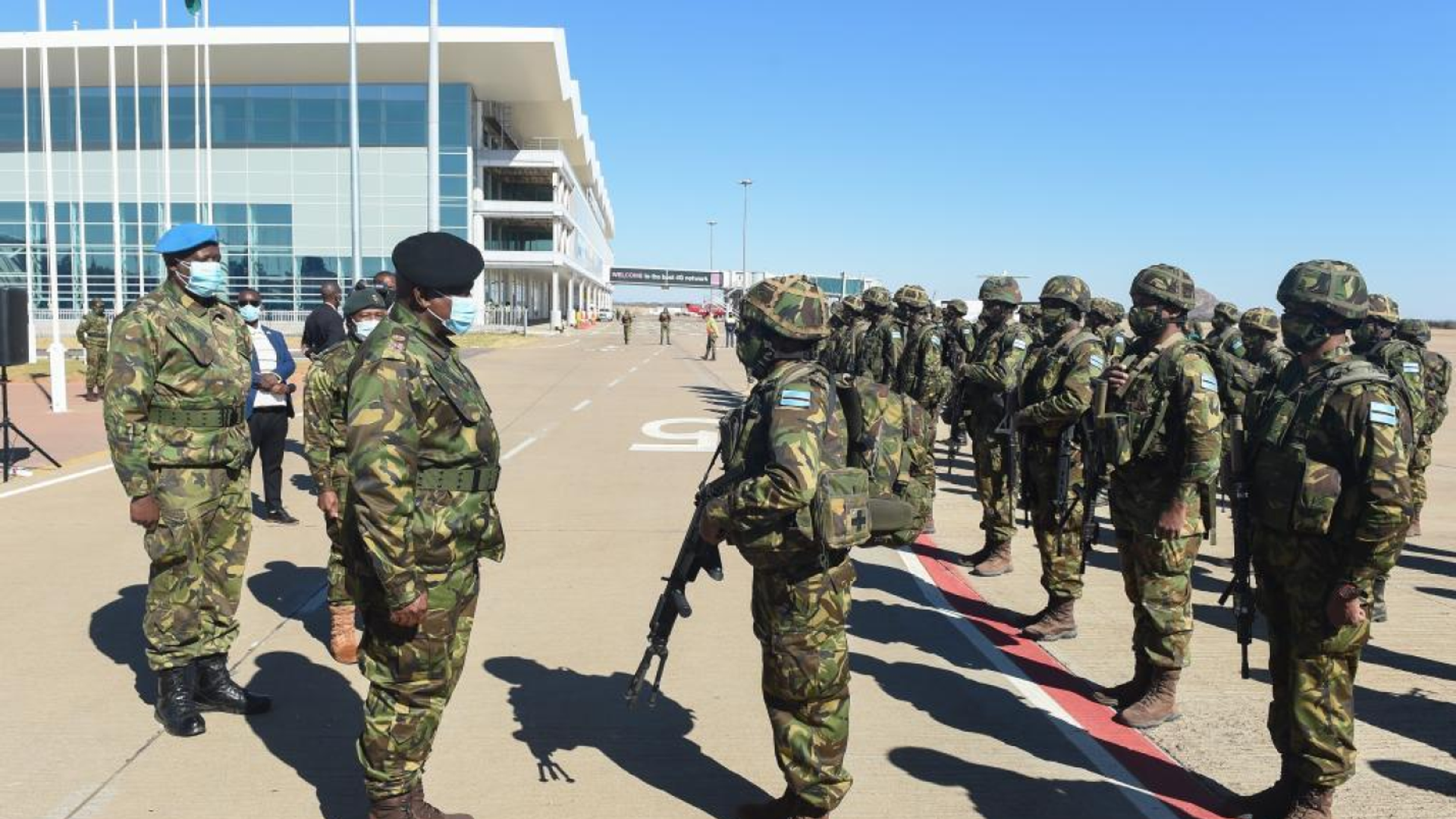After France’s Barkhane, Many Worry Deployments to Mozambique Could Make Things Worse
00:59 GMT 30.07.2021 (Updated: 12:53 GMT 10.11.2022)
Subscribe
Cabo Delgado is paradoxically both one of Mozambique’s poorest provinces, but also one of its most resource-rich, and the explosive mix has helped drive more than one insurgent movement, including the FRELIMO liberation front that won the country’s independence from Portugal in 1975.
Thousands of troops have begun pouring into Mozambique from several other African nations to help Maputo fight Islamist rebels in the country’s north. However, rather than spelling the beginning of the end for Ansar as-Sunna, some experts are warning the conflict could be entering an even more dangerous phase.
South African President Cyril Ramaphosa told parliament on Wednesday that 1,495 troops were on their way to neighboring Mozambique, part of an international “standby force” organized by the 16 nations of the Southern African Development Community (SADC). The SADC deployment was authorized for three months in June and will expire on October 15.
The announcement comes after several other partners also announced troops were on the way. On Tuesday, Botswana President Mokgweetsi Masisi bade farewell to the first 70 of 296 soldiers sent to Mozambique, and the Angolan National Assembly approved a small deployment of 20 military personnel to begin next month.
Zimbabwe’s defense minister, Oppah Muchinguri-Kashiri, announced on Thursday that 304 non-combat troops would be dispatched to Mozambique as well, to participate in training programs.
The troops will be arriving in the wake of 1,000 Rwandan soldiers sent earlier this month. The Central African nation isn’t part of SADC and its deployment was arranged separately with Maputo. European Union troops are also expected to soon arrive.
Mozambican President Filipe Nyusi hailed SADC for sending aid, which he resisted seeking for months amid hesitation to welcome foreign troops onto Mozambican soil.
"The mandate of foreign forces is to help Mozambican forces restore peace and stability," Nyusi said in a Tuesday address to the nation. "We should not fear the presence of foreign forces in our country. We should be afraid of being alone in fighting terrorism."
Maputo’s ability to fight the insurgency itself is severely hamstrung by the tight financial constraints placed on it by the International Monetary Fund as a condition of extending the country loans, which favor privatization and contracting deals over government programs.

The Botswana Defence Force (BDF) soldiers depart from Sir Seretse Khama International Airport in Gaborone, Botswana, July 26, 2021. The BDF will provide regional support to the Republic of Mozambique to combat the looming threat of terrorism and acts of violent extremism in the Cabo Delgado region, as an element of the Southern Africa Development Community (SADC) Mission in Mozambique. A total of 296 BDF soldiers will be deployed in Mozambique, and 70 of them departed on Monday.
The agglomeration of armies will mostly be headed to the northernmost Cabo Delgado Province, where years of mining and gas exploration projects have displaced residents and the security forces hired to guard the projects have been accused of brutalities.
Civil resistance by small armed groups began in the poor, largely-Muslim province in 2017, but has since snowballed into a powerful insurgency that has, at least formally, pledged itself to Daesh, drawing international attention. Now, more than 3,100 people have been killed and more than 800,000 people displaced as they flee from the expanding violence.
Some of Africa’s largest liquid natural gas projects are located in Cabo Delgado, with investments worth tens of billions of dollars, and mines in the province are responsible for supplying most of the world’s rubies. After French gas giant Total was forced to declare force majeure on its project there earlier this year, it put a global spotlight on Mozambique and demands for a military intervention grew.
However, experts are warning that flooding the area with troops could only make the situation worse.
An ‘Unwinnable’ War?
Jasmine Opperman, a South African-based analyst with the Armed Conflict Location & Event Data Project (ACLED), told The Guardian that she doesn’t think she “can be optimistic” about the outcome if nothing is done to address the causes of the insurgency.
“If there is an over-reliance on an unaccountable military, the causes will remain,” she said.
“Authorities need to reckon with what needs to be done to incentivise the militants to reconsider violence as the best means to resolve grievances,” Dino Mahtani, an expert on Mozambique at the International Crisis Group, told the outlet. “If they simply think they can defeat and dismantle the group, then they may get themselves involved in an unwinnable war.”
“Military pressure can degrade and erode [the insurgency in Mozambique], but ultimately this is a conflict that needs resolution dialogue,” he added.
Abdullahi Boru Halakhe, an expert on governance, security and peace in Africa, gave a similar warning in a May op-ed published by Al Jazeera, writing that “as seen elsewhere in Africa and in the last four years in Mozambique, militarisation does not curb violence – it brings more abuse, resentment and consequently, more violence ... Defeating Ansar al-Sunna requires not more troops and weapons, but dialogue and development. If the local authorities and their regional and international partners fail to see this, the region will see more violence, conflict, and death.”
Indeed, lengthy troop deployments by foreign powers, but especially Western powers, have repeatedly failed to defeat the irregular insurgent forces they are sent to destroy. Last month, France announced the end of Operation Barkhane, an eight-year-long anti-terrorism campaign waged across five countries in the Sahel, and pulled some 300 troops out of the Central African Republic after that country’s government turned to Russian military trainers when European Union instructors failed to have an appreciable impact on its military’s fighting abilities.
Last week, US Africa Command carried out two airstrikes in Somalia against al-Shabaab, an al-Qaeda affiliate in rebellion against the Somali government. US troops and CIA agents have continued to operate in the country despite the formal withdrawal of all 700 US troops last year.




